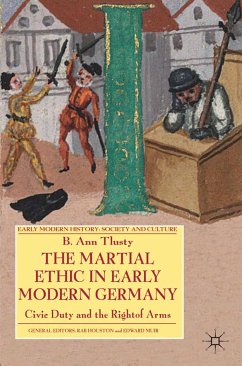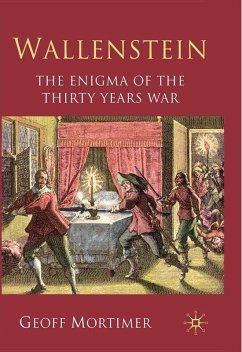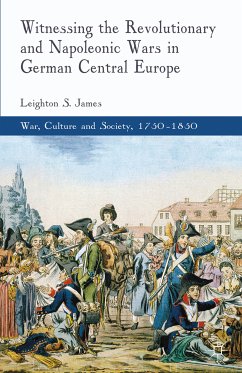
The Martial Ethic in Early Modern Germany (eBook, PDF)
Civic Duty and the Right of Arms
Versandkostenfrei!
Sofort per Download lieferbar
136,95 €
inkl. MwSt.
Weitere Ausgaben:

PAYBACK Punkte
68 °P sammeln!
For German townsmen, life during the sixteenth and seventeenth centuries was characterized by a culture of arms, with urban citizenry representing the armed power of the state. This book investigates how men were socialized to the martial ethic from all sides, and how masculine identity was confirmed with blades and guns.
Dieser Download kann aus rechtlichen Gründen nur mit Rechnungsadresse in A, B, BG, CY, CZ, D, DK, EW, E, FIN, F, GR, HR, H, IRL, I, LT, L, LR, M, NL, PL, P, R, S, SLO, SK ausgeliefert werden.












